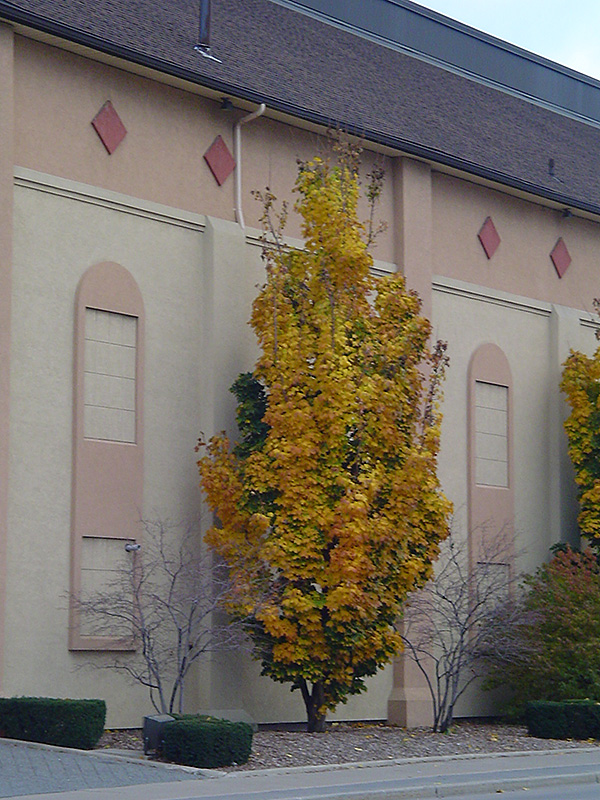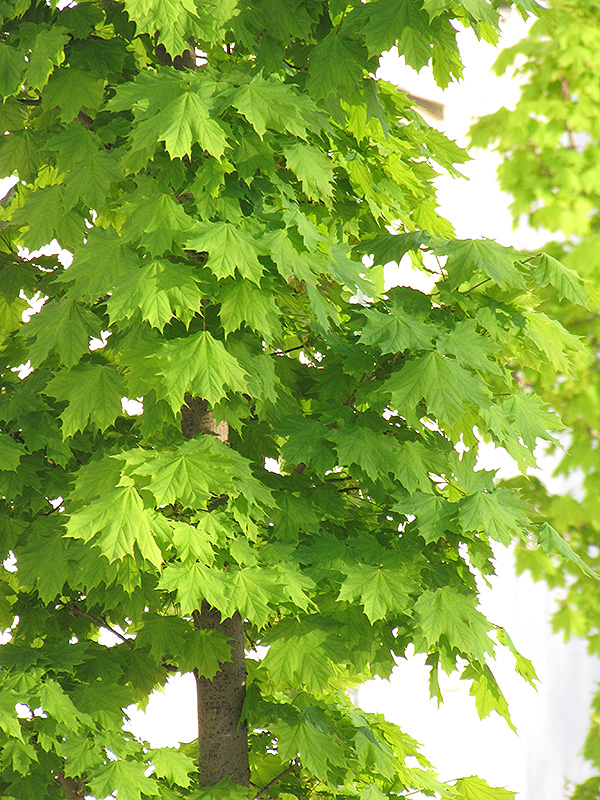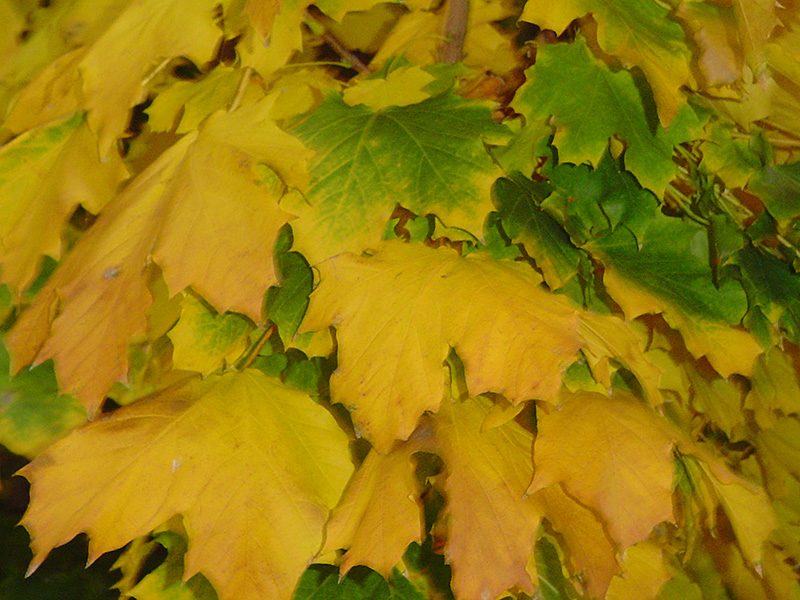Columnar Norway Maple
Acer platanoides 'Columnare'
Height: 45 feet
Spread: 15 feet
Sunlight:
![]()
Hardiness Zone: 4
Description:
A popular choice for adding a little dynamic motion to the skyline of a landscape silhouette, this is a tall and very columnar tree, making quite a strong exclamation point in the landscape
Ornamental Features
Columnar Norway Maple is primarily valued in the landscape for its rigidly columnar form. It is blanketed in stunning corymbs of lemon yellow flowers along the branches in early spring before the leaves. It has dark green deciduous foliage. The lobed leaves turn yellow in fall.
Landscape Attributes
Columnar Norway Maple is a dense deciduous tree with a narrowly upright and columnar growth habit. Its relatively coarse texture can be used to stand it apart from other landscape plants with finer foliage.
This is a relatively low maintenance tree, and should not require much pruning, except when necessary, such as to remove dieback. It has no significant negative characteristics.
Columnar Norway Maple is recommended for the following landscape applications;
- Accent
- Vertical Accent
Planting & Growing
Columnar Norway Maple will grow to be about 45 feet tall at maturity, with a spread of 15 feet. It has a low canopy with a typical clearance of 5 feet from the ground, and should not be planted underneath power lines. It grows at a medium rate, and under ideal conditions can be expected to live to a ripe old age of 100 years or more; think of this as a heritage tree for future generations!
This tree should only be grown in full sunlight. It prefers to grow in average to moist conditions, and shouldn't be allowed to dry out. It is not particular as to soil type or pH. It is highly tolerant of urban pollution and will even thrive in inner city environments. This is a selected variety of a species not originally from North America.



